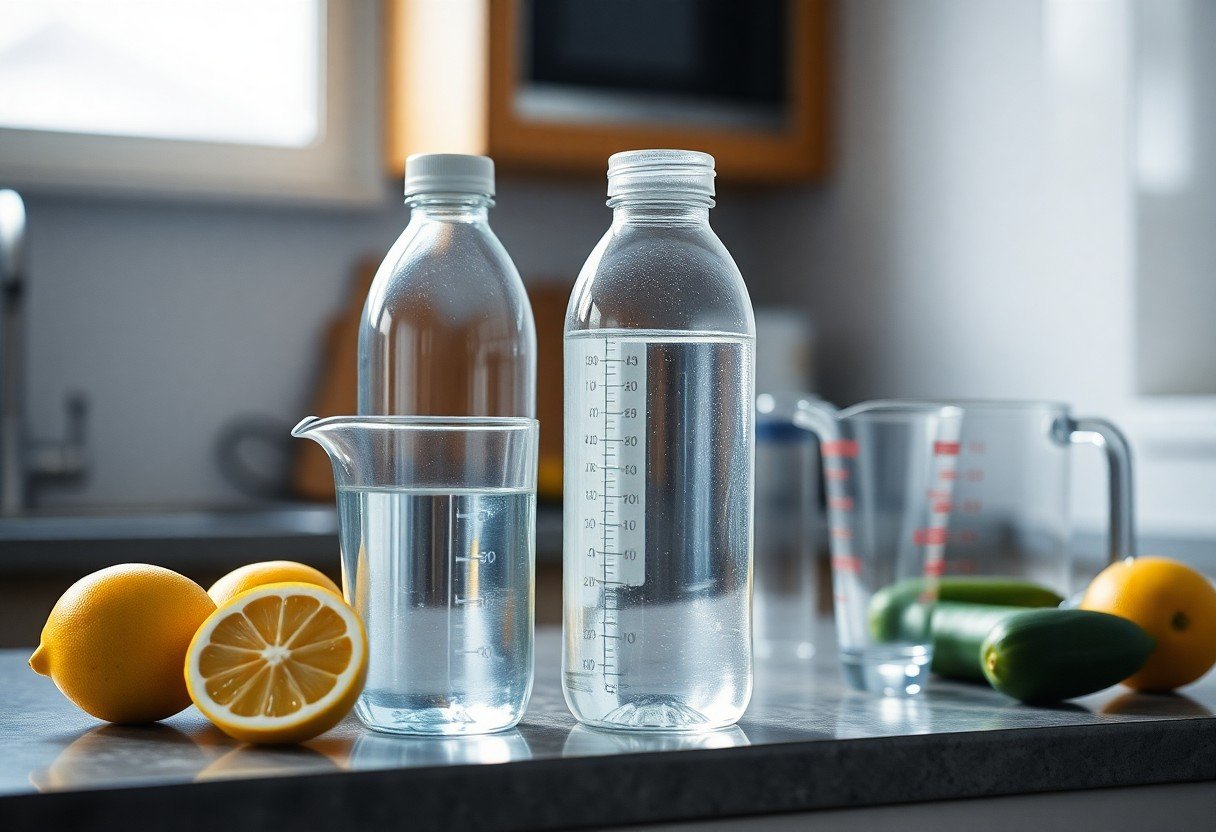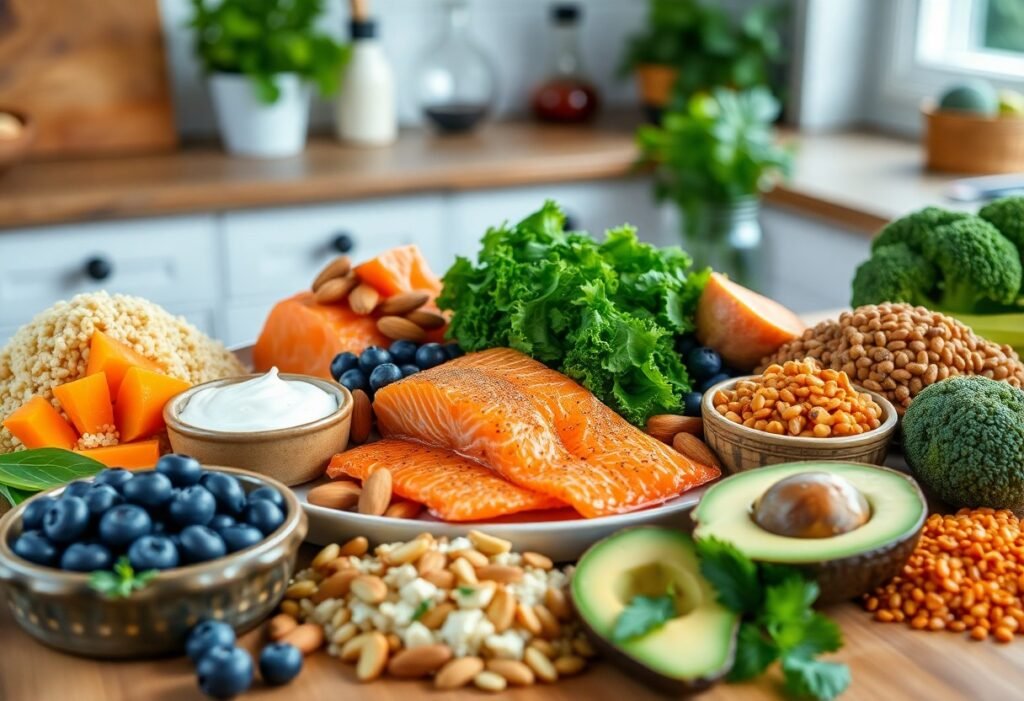Water is imperative for your overall health and well-being, impacting everything from energy levels to cognitive function. Understanding the ideal amount of water you should consume daily can be overwhelming, as factors like activity level, climate, and diet play significant roles. In this post, you’ll discover practical hydration hacks tailored to your lifestyle and learn the potential dangers of dehydration. Additionally, you’ll gain insights into how to make drinking water a more enjoyable and consistent part of your daily routine.
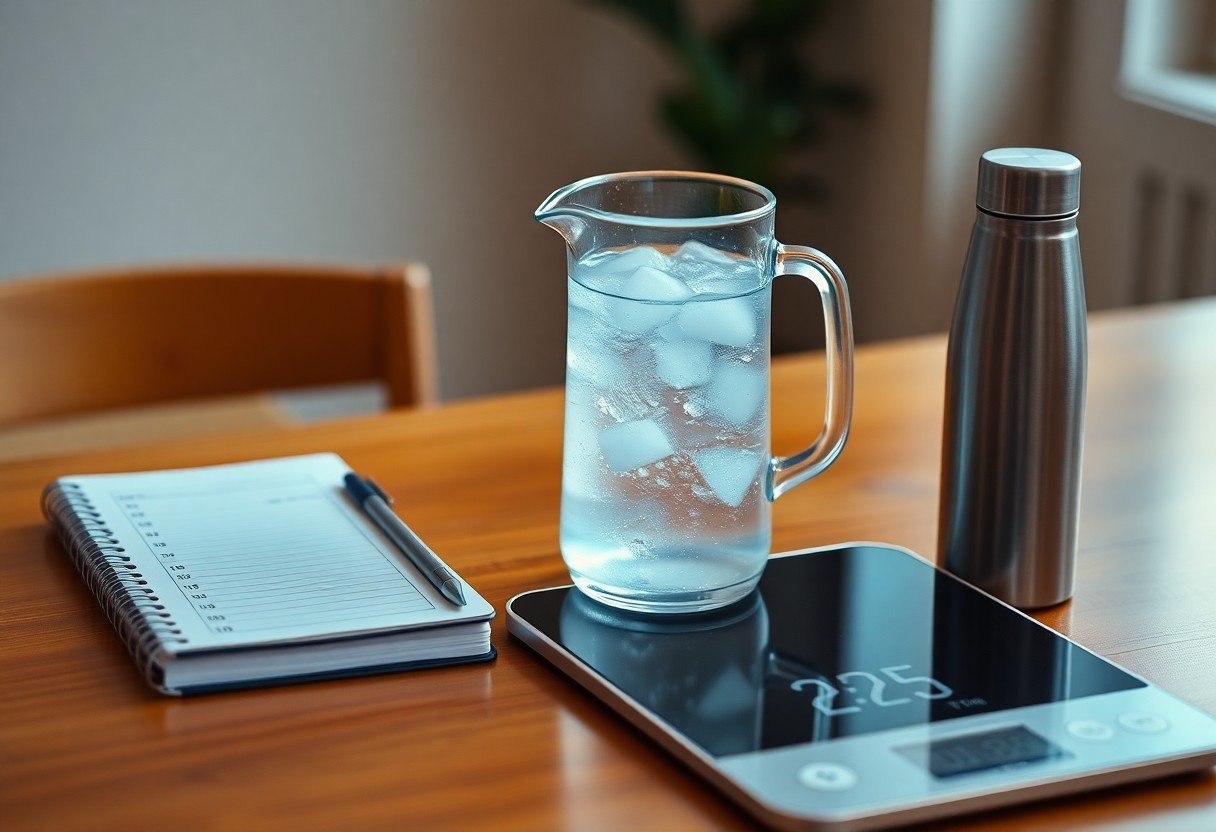
Key Takeaways:
- Daily water intake varies based on factors like age, activity level, and climate, typically ranging from 2.7 to 3.7 liters for adults.
- Hydration can be achieved through food, as fruits and vegetables contribute to overall fluid intake.
- Signs of hydration include light-colored urine and the absence of thirst, indicating adequate fluid levels.
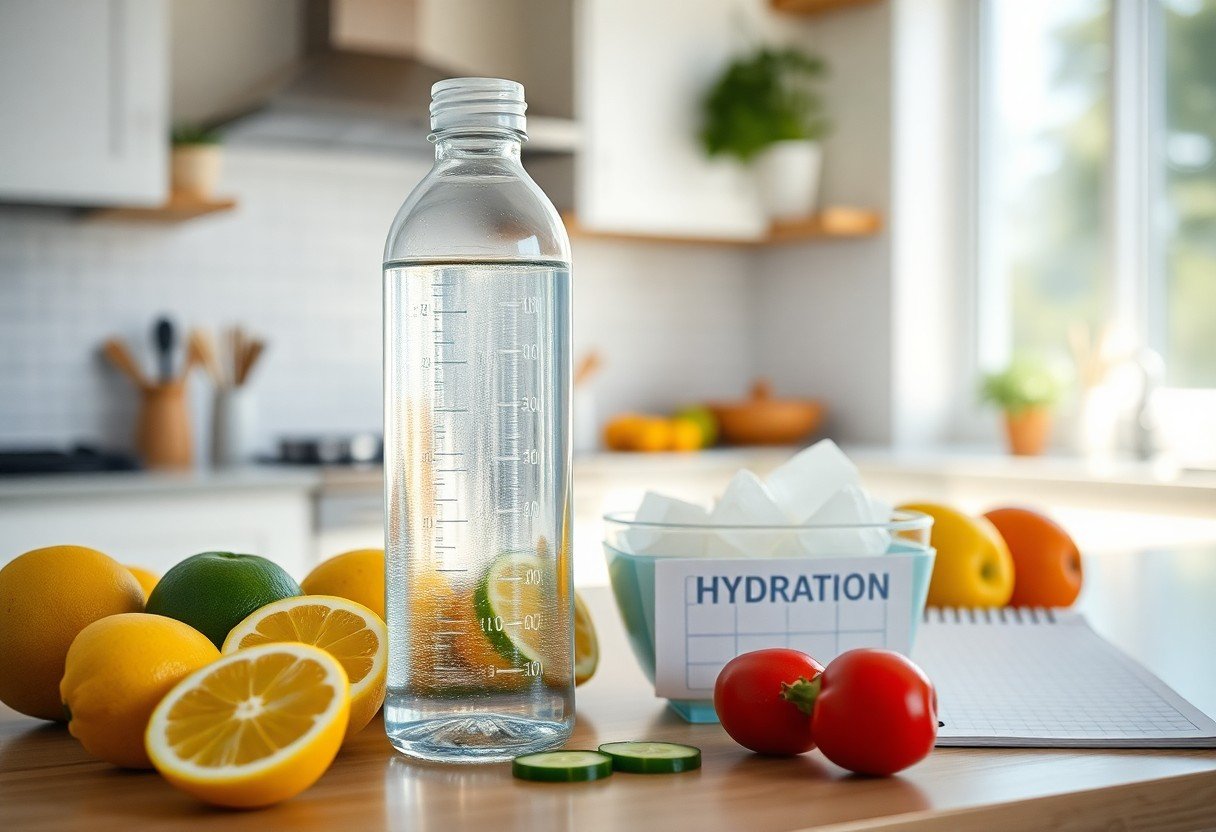
Understanding Hydration
The Importance of Water
Water is fundamental for your body, accounting for about 60% of your total body weight. It plays a vital role in numerous physiological processes, from regulating body temperature to facilitating nutrient transport and waste elimination. Without adequate water intake, your body can rapidly fall into a state of dehydration, impairing your physical and mental performance.
The Role of Hydration in Health
Proper hydration is important for maintaining optimal health. Water helps your body absorb nutrients, supports cardiovascular function, and prevents complications such as kidney stones. Insufficient hydration can lead to various health issues, including headaches, fatigue, and reduced cognitive function, impacting your day-to-day activities.
Studies show that even mild dehydration can negatively affect your mood and concentration, reducing your productivity by as much as 30%. Staying hydrated also aids in digestion and can enhance physical performance; athletes often benefit from increased endurance and reduced injury risks when they consistently meet their hydration needs. By prioritizing your hydration, you create a foundation for improved overall health and wellness.
Daily Water Needs
Factors Influencing Water Requirements
Your water needs can greatly vary based on several factors. Considerations include your age, gender, activity level, and the climate you live in. For instance, if you exercise frequently or live in a hot environment, your body will require more hydration. In contrast, sedentary individuals or those in cooler climates may need less. Water: How much should you drink every day? After assessing these variables, you can better determine your specific hydration needs.
Recommended Daily Intake Guidelines
The general recommendation for daily water intake is about 3.7 liters for men and 2.7 liters for women, derived from all fluids consumed, including other beverages and food. You should aim to adjust this based on your lifestyle and the factors previously mentioned for optimal health.
Following these guidelines can help ensure that you remain adequately hydrated. For instance, individuals engaging in intense workouts may need an extra liter or more, while those in cooler climates might find that they require less. Additionally, factors like pregnancy or breastfeeding can further increase your needs, ensuring that you are not only meeting your own hydration requirements but also supporting your body’s increased demands.
Signs of Dehydration
Physical Symptoms
When you are dehydrated, your body sends clear signals. Common physical symptoms include a dry mouth, fatigue, headaches, and reduced urine output. You might also notice darker urine, which indicates concentrated waste. In severe cases, dizziness and rapid heartbeat can occur, signaling a need for immediate hydration intervention.
Mental and Emotional Effects
Dehydration extends beyond physical impacts; it can lead to notable mental and emotional effects as well. Here, feelings of irritability, anxiety, and lack of focus often arise, which can interfere with daily tasks. You may find it challenging to concentrate or feel more easily overwhelmed.
Research has shown that even mild dehydration can impair cognitive performance, leading to issues such as diminished alertness and increased fatigue. In one study, participants who were just 1-2% dehydrated displayed a decline in mood and concentration. This underlines the importance of maintaining adequate hydration to support not only your physical health but also your mental clarity and emotional stability.
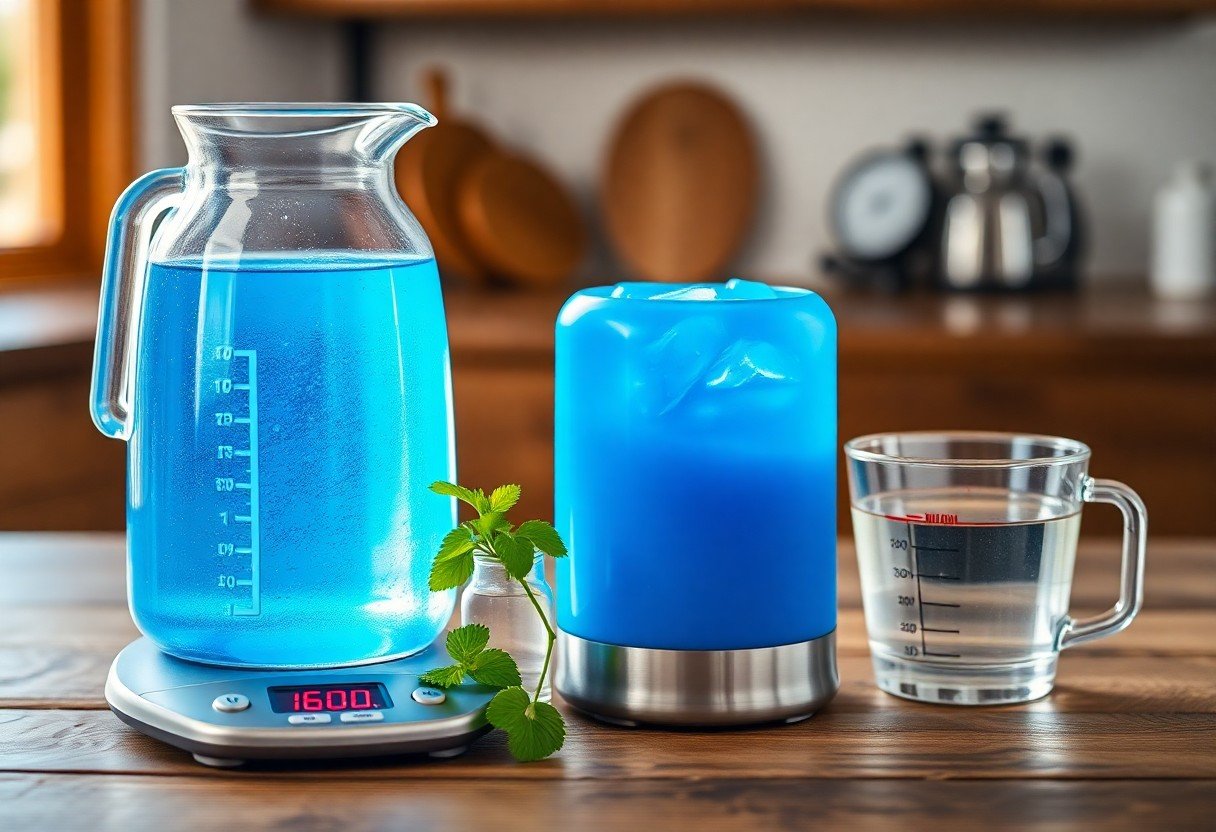
Hydration Sources
Drinking Water
The most straightforward way to meet your hydration needs is through drinking water. Aim to drink at least 8 to 10 cups (or 2 to 2.5 liters) of water daily, adjusting based on your activity level and climate. Use a reusable water bottle to help track your intake and make drinking water a regular habit throughout your day.
Foods with High Water Content
Incorporating foods with high water content into your diet is an excellent way to boost your overall hydration. Fruits and vegetables like cucumbers, tomatoes, watermelon, and oranges contain around 90% water, making them ideal choices to help you meet your hydration goals.
Foods such as watermelon, with about 92% water content, and cucumbers, around 95%, can significantly contribute to your hydration. Adding these items to your meals can complement your water intake. For instance, snacking on fruits like strawberries or veggies such as celery offers both hydration and necessary nutrients, supporting overall health.
Other Beverages
Besides water, other beverages can contribute to your hydration. Herbal teas, coconut water, and low-sugar sports drinks serve as viable alternatives. However, be mindful of caffeine and alcohol, as they can have a diuretic effect and may lead to dehydration if consumed in excess.
Choosing beverages like herbal teas can be hydrating without the added sugars of sodas or energy drinks. Coconut water is naturally rich in electrolytes, making it a favorable option post-exercise, while low-sugar sports drinks can help replenish fluids and electrolytes during intense workouts. Balance your beverage choices for optimal hydration effectiveness.
Tips for Staying Hydrated
- Set a daily goal for your water intake.
- Use apps and reminders for consistent hydration.
- Flavor your water to make it more appealing.
- Keep a water bottle with you at all times.
- Consume foods with high water content.
Setting a Daily Goal
Establishing a daily water intake goal can drive your hydration efforts. Aim for at least 3 liters for men and 2.2 liters for women, adjusting based on your activity level, temperature, and body size. Keep a log to track your progress, helping you stay accountable throughout the day.
Using Apps and Reminders
Apps designed for hydration can be invaluable in keeping you on track. Set reminders on your phone to prompt you to drink water at regular intervals, ensuring you meet your hydration goals effectively and consistently.
Many hydration apps allow you to customize your daily intake needs based on your weight and activity level. You can even compete with friends or join challenges, making hydration more engaging. An easily accessible hydration tracker can also enhance your awareness of your consumption habits, pushing you to improve.
Flavoring Water to Increase Intake
If plain water feels unappealing, flavoring it can significantly boost your intake. Add slices of citrus fruits, cucumbers, or herbs like mint to elevate the taste, making hydration enjoyable and refreshing.
Infused water not only quenches your thirst but also offers vitamins and flavors that entice you to drink more. Experiment with different combinations-like lemon-lime or cucumber-mint-to discover which combinations you enjoy the most. The more flavorful your water is, the easier it becomes to keep up with your hydration goals.
Special Considerations
Hydration During Exercise
When engaging in physical activity, your body loses water through sweat, necessitating increased hydration. Aim to drink about 17-20 ounces of water two to three hours before exercising, and another 8 ounces about 20-30 minutes prior. During workouts lasting over an hour, consider electrolyte drinks to replenish lost minerals.
Climate and Altitude Effects
Your hydration needs can significantly alter based on climate and altitude. Hot and humid environments force your body to sweat more, while higher altitudes lead to faster respiration and moisture loss. Consequently, you may need to increase your fluid intake by up to 50% in such conditions.
For instance, in hot climates, dehydration can occur quickly; thus, monitoring your water intake and thirst levels is important. At high altitudes, reduced humidity and increased physical exertion exacerbate fluid loss, making it critical to hydrate regularly. Consider carrying water or electrolyte-rich beverages to ensure you stay adequately hydrated in these challenging conditions.
Hydration for Specific Populations
Certain populations, such as children, pregnant women, and the elderly, have distinct hydration needs. Children, due to their high activity levels, require additional fluids, while pregnant women should aim for an extra 10 ounces daily to support fetal development. The elderly often have decreased thirst sensitivity and are at increased risk for dehydration.
It’s important to tailor hydration strategies to individual circumstances. For instance, children can benefit from flavored water to encourage higher intake, while older adults should be routinely reminded to drink throughout the day. Pregnant women should consult healthcare providers for personalized hydration guidelines to ensure both their and their baby’s health. Regular hydration checks can also prevent health issues related to dehydration in these groups.
To wrap up
Following this guidance on hydration, you should assess your daily water needs based on factors like activity level, climate, and personal health. Aim to drink adequate amounts throughout the day, and consider incorporating hydrating foods into your diet. By being aware of your body’s signals and making conscious choices, you can maintain optimal hydration for enhanced performance and overall well-being.
FAQ
Q: How much water should I drink daily?
A: The general guideline is to drink about 8 cups (64 ounces) of water daily, but this can vary based on activity level, climate, and individual health needs.
Q: What factors influence my hydration needs?
A: Factors include age, sex, weight, physical activity, climate, and overall health. Those who exercise or live in hot climates may require more water.
Q: Can I hydrate with beverages other than water?
A: Yes, other beverages like herbal teas, milk, and fruit juices, as well as water-rich foods such as fruits and vegetables, contribute to your overall hydration.
Q: How can I tell if I am properly hydrated?
A: Signs of proper hydration include light yellow urine, normal energy levels, and not feeling excessively thirsty. Dark urine or fatigue can indicate dehydration.
Q: Are there any risks associated with overhydration?
A: Yes, overhydration can lead to a condition called hyponatremia, where sodium levels in the blood become dangerously low, causing symptoms like headache, nausea, and confusion.


